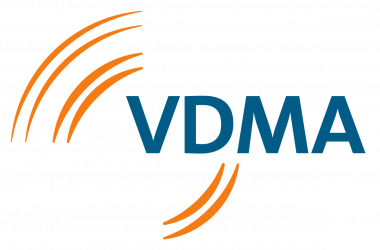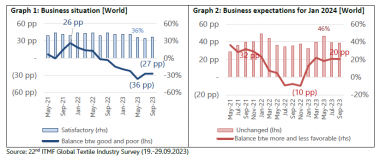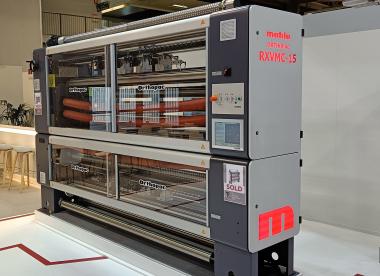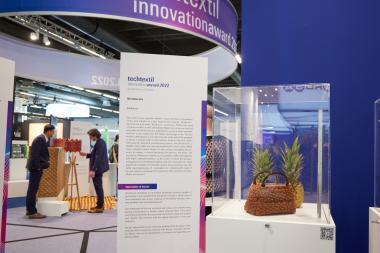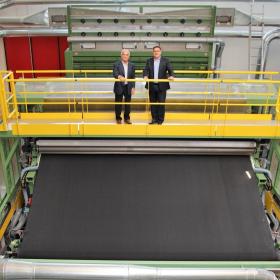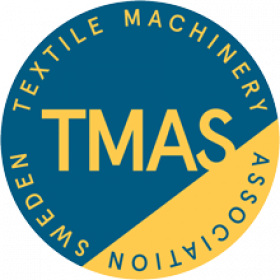Mahlo präsentiert neue Lösungen auf der ITMA Asia 2023
Mahlo GmbH + Co. KG präsentiert zusammen mit Shanghai Kuantex auf der ITMA Asia (19. und 23. November) ihre Systeme und Lösungen für eine effiziente und qualitativ hochwertige Textilproduktion und -veredlung. Im Fokus steht dabei das neue Richtkonzept, Orthopac RXVMC, des Maschinenbauers.
„Beim neuen Richtkonzept wurde besonderes Augenmerk auf die Richtmechanik und deren Zusammenspiel mit der Analyseelektronik des Tastkopfsystems gelegt“, erklärt Vertriebsleiter Thomas Höpfl. Neu ist auch das Ansteuerungskonzept. Eine Tastkopfgruppe am Einlauf der Richtmaschine erkennt Verzüge, noch bevor Sie die Korrekturwalzen erreichen. So werden die Walzen direkt in Position gebracht und die Ware bereits ab dem ersten Zentimeter korrigiert. Eine Tastkopfgruppe am Auslauf erkennt zusätzlich möglichen Restverzug, der den am zweiten Richtmodul korrigiert wird. Das ermöglicht eine noch präzisere und schnellere Reaktion, wenn es gilt auf schnell wechselnde Verzügen zu reagieren. Seine volle Stärke zeigt das Orthopac RXVMC daher beim Richten von Maschenwaren und verzugsempfindlichen Geweben.
Zur hochwertigen Textilherstellung und Veredlung trägt auch das Famacont PMC zur Regelung von Schussfaden- und Maschenreihendichte bei, das auf der ITMA Asia ebenfalls zu sehen ist. Das Famacont PMC-15 misst mittels Sensor die Faden- bzw Maschendichte und vergleicht sie mit dem in der Rezeptdatenverwaltung hinterlegtem Sollwert. Die erkannte Abweichung der Fadendichte vom Sollwert wird genutzt, um die Voreilung beim Aufnadelprozess am Spannrahmen vollautomatisch zu regeln. Interessierte können sich die Funktionsweise am Mahlo-Stand mit Hilfe eines Demo-Towers und eigener oder zur Verfügung gestellter Stoffproben erklären lassen.
Weiter großes Thema bleibt die Industry 4.0. Denn die besten gemessen Daten nützen nichts, wenn sie nicht verwertet werden können. Mahlo hat seine digitale Umgebung mSmart kontinuierlich weiterentwickelt. „Unsere Systeme generieren Daten, die der Kunde sofort nutzen kann, um Ware on-line zu regeln. Gleichzeitig werden alle Messwerte in unserem Datenmanagementsystem mLog enhanced gesichert und sind jederzeit abrufbar. Mit diesen historischen Daten können Prozesse optimiert und Schwachstellen im Ablauf zu minimiert werden“, erklärt Vertriebsleiter Thomas Höpfl.
Mahlo GmbH + Co. KG






